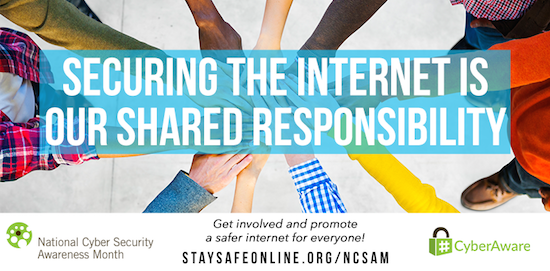Another day, another data breach. That might be a slight exaggeration, but it’s not far off. Threats to personal and organizational information are constant, and while there is nothing you can do to be 100% safe from attacks, you can take some simple steps to be more secure.
October is National Cyber Security Awareness Month (NCSAM), and we want to help you understand the threats to your computers, mobile devices, and data.
The following resources and tips can help you go a long way toward keeping your information safe:
- Simmons College Guide to Information Security
- Download and Install Antivirus Software
- General Tips and Advice from Stop. Think. Connect.
- Guide to Spam and Phishing
- Free Security Check-ups and Tools
- Last, but not least, don’t ignore those notifications to update your apps and operating system. Many updates include vital security enhancements.
We also want to thank the entire community for your help in making SharkPass two-step verification a success. Everyone at the College is now using SharkPass (more than 10,000 accounts!) and benefiting from this extra layer of security.
If you have any questions about staying safe online, keeping your devices and data secure, or working with sensitive information at Simmons, the Service Desk (617-521-2222) is always available to help.


 This summer, the Simmons Technology team has been working to replace the entire wireless network infrastructure on the residence and academic campuses.
This summer, the Simmons Technology team has been working to replace the entire wireless network infrastructure on the residence and academic campuses.